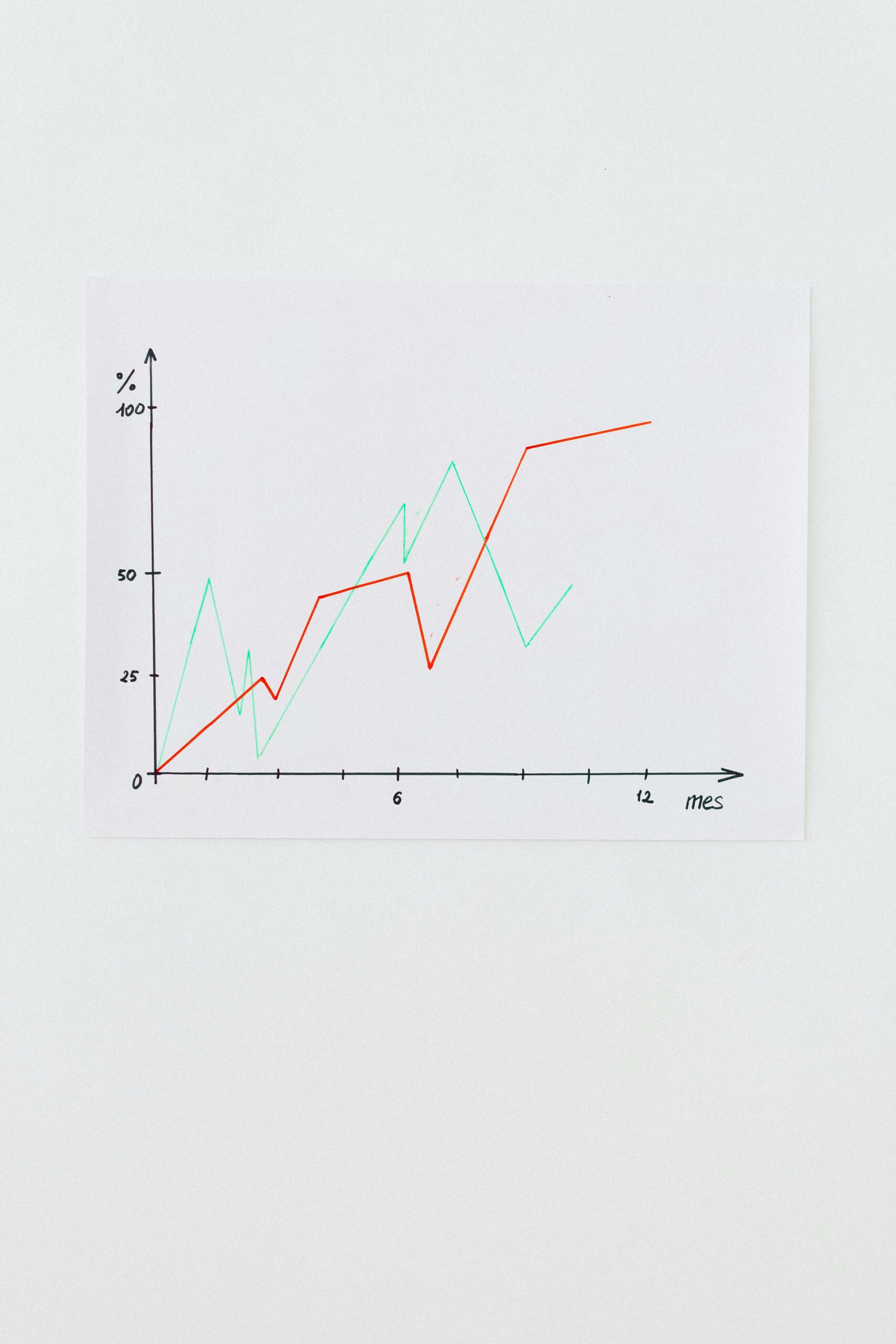Why do inflation reports shake forex markets so dramatically? If you’ve ever wondered what makes the currency world tick and tremble, you’re not alone. In this article, we’ll uncover the hidden market secrets behind these economic bombshells and explain exactly why inflation data releases cause such volatility in the foreign exchange trading arena. Prepare to dive deep into the heart of forex market dynamics and discover how savvy traders use inflation insights to predict currency movements like pros!
Every time a new inflation report drops, the forex market braces for impact. But why is inflation so powerful? Inflation measures the rise in prices for goods and services, and it directly influences central bank policies, interest rates, and ultimately, the value of currencies. When inflation numbers surprise traders—either higher or lower than expected—it can spark rapid price swings, triggering buying or selling frenzies across the currency pairs. So, what exactly are the market secrets behind this reaction? And how can you, as a trader, leverage this knowledge to boost your forex trading strategy?
Stay tuned as we reveal the crucial connection between inflation reports and forex volatility, unpacking the causes of market shocks and offering insider tips to help you navigate these turbulent waters. Whether you’re a beginner or a seasoned trader, understanding why inflation data moves markets is a game changer. Ready to unlock the mystery and gain an edge? Let’s get started!
How Inflation Reports Trigger Volatility in Forex Markets: Top 5 Key Factors Explained
In the fast-paced world of forex trading, inflation reports often act like a thunderstorm hitting a calm sea. Traders and investors all over the globe keep an eye on these reports, because they have the power to shake the markets dramatically. But why exactly do inflation reports cause such volatility in forex markets? This article will uncover some of the market secrets behind this phenomenon and explain the top 5 key factors that make inflation data so influential.
What is Inflation and Why It Matters in Forex?
Inflation refers to the rate at which the general level of prices for goods and services rise, causing purchasing power to fall. Central banks like the Federal Reserve in the US, or the European Central Bank, monitor inflation closely because it affects their monetary policies. In forex markets, currencies’ values often react strongly to inflation data because it gives clues about the economic health of a country and the future interest rate decisions.
Historically, inflation reports have triggered big moves. For example, during the 1970s oil crisis, high inflation rates caused the US dollar to fluctuate wildly as markets tried to predict how policymakers would respond. Even today, inflation reports remain one of the most watched economic indicators by forex traders worldwide.
Top 5 Key Factors Why Inflation Reports Trigger Volatility in Forex Markets
Interest Rate Expectations
Inflation data directly influence what traders expect central banks to do with interest rates. If inflation is higher than expected, markets often anticipate rate hikes to curb inflation, which usually strengthens the currency. Conversely, lower inflation may signal rate cuts or a pause in tightening, weakening the currency. This expectation shift leads to rapid buying or selling of currencies, causing volatility.Market Sentiment and Speculation
Forex markets are heavily driven by sentiment. When inflation reports come out, traders rush to interpret the data in the context of economic health. If the numbers surprise the market, speculative moves increase dramatically. For instance, a sudden spike in inflation might cause panic selling of a currency, as traders try to exit before the value drops more.Impact on Purchasing Power
Inflation reduces the buying power of a currency. When inflation rises unexpectedly, foreign investors get worried that their investments will lose value in real terms. This uncertainty may trigger capital flight from that currency, leading to sharp declines. On the other hand, low inflation can boost confidence, attracting investment and pushing the currency higher.Effect on Trade Balances
Changes in inflation can alter a country’s export and import dynamics. Higher inflation makes exports more expensive and less competitive globally, which can hurt the trade balance and weaken the currency. Lower inflation tends to improve competitiveness, supporting currency strength. Forex traders often analyze inflation reports to predict these trade effects, adding to market movements.Correlation with Other Economic Indicators
Inflation reports seldom exist in isolation. They often interact with other data like employment numbers, GDP growth, or consumer spending. For example, rising inflation combined with strong employment figures may reinforce expectations of monetary tightening, amplifying currency moves. Traders must consider the broader economic picture, which can increase complexity and volatility after inflation data releases.
Examples of Inflation Impact on Forex Markets
Let’s look at some practical examples to understand better:
- In January 2022, the US Consumer Price Index (CPI) showed a sharp increase, far above expectations. This surprised traders and led to a swift appreciation of the US dollar as investors anticipated aggressive Federal Reserve rate hikes.
- Conversely, in August 2020, inflation data was weaker than forecasted in the Eurozone, which caused the euro to weaken against the dollar because markets predicted prolonged monetary easing from the European Central Bank.
How Traders Can Prepare for Inflation Reports
Given how unpredictable inflation data can be, traders often use various strategies to manage risk:
- Follow Consensus Estimates: Look at analyst forecasts before the release. If the actual inflation number deviates significantly, expect volatility.
- Use Stop-Loss Orders: To protect against sudden market moves, placing stop-losses helps limit potential losses.
- Watch Central Bank Statements: After inflation data, central bank officials often comment on future policy moves. These comments can either calm or further excite the market.
- Diversify Trading Positions: Avoid putting all capital into one currency or pair when inflation reports are due. Spreading risk can reduce impact.
Table: Inflation Reports and Forex Market Reactions (Simplified)
| Inflation Report Outcome | Central Bank Reaction Expected | Forex Market Reaction | Example Currency Pair Movement |
|---|---|---|---|
| Higher than expected | Rate hikes or tightening | Currency appreciates | USD/EUR rises after US CPI surprises |
| Lower than expected | Rate cuts or easing | Currency depreciates | EUR/USD rises after weak Eurozone CPI |
| In line with estimates | No major change |
Unlocking the Secrets: Why Do Inflation Reports Cause Sudden Forex Market Swings?
Unlocking the Secrets: Why Do Inflation Reports Cause Sudden Forex Market Swings?
Forex markets are known for their rapid movements, but few events cause such sudden swings like inflation reports do. Traders, investors, and analysts around the world keep a close eye on these reports, yet many still wonders why exactly inflation numbers can shake the forex markets so dramatically. The truth is, inflation reports contain critical information about an economy’s health, central bank policies, and future interest rates, making them a key driver of currency values. In this article, we will uncover the reasons behind these market reactions, provide historical context, and explore practical examples that reveal the secrets behind these sudden forex market swings.
What Are Inflation Reports and Why They Matter?
Inflation reports are official government or financial institution releases that measure the rate at which prices for goods and services are rising or falling in an economy. Commonly tracked indicators include the Consumer Price Index (CPI) and the Producer Price Index (PPI). These reports are essential because inflation influences purchasing power, cost of living, and economic stability.
- Inflation reports show how fast prices change over a period (usually monthly or yearly).
- Central banks use inflation data to decide monetary policy, especially interest rates.
- High inflation often cause central banks to increase rates, while low inflation might lead to rate cuts.
Because currencies are directly affected by interest rate changes, inflation reports become a major catalyst for forex market movements.
Historical Context: Inflation and Forex Market Volatility
Looking back at forex history, inflation reports have consistently triggered sharp market reactions. For example, during the late 1970s and early 1980s, the US faced double-digit inflation which led the Federal Reserve to hike interest rates aggressively. Each inflation release during this period caused dramatic swings in the US dollar value.
In more recent times, the 2008 financial crisis and subsequent quantitative easing policies by the Federal Reserve and other central banks made inflation reports even more significant. Traders closely monitor these updates to anticipate policy shifts that can affect currency strength.
Why Inflation Reports Shake Forex Markets: Uncovering the Mechanisms
The connection between inflation reports and forex markets is complex but can be broken down into several key reasons:
Expectations vs Reality: Forex markets move not just on inflation figures themselves, but how they compare to market expectations. If inflation comes in higher than expected, traders might anticipate tighter monetary policy, boosting the currency value. Conversely, lower-than-expected inflation can cause currency weakness.
Interest Rate Implications: Central banks often adjust interest rates to control inflation. Higher inflation typically lead to higher interest rates, attracting foreign investment and increasing demand for that currency. Lower inflation suggest looser monetary policy, decreasing currency appeal.
Market Sentiment and Speculation: Inflation reports can rapidly shift market sentiment. If investors believe inflation is rising uncontrollably, they may sell off riskier assets and flock to safe-haven currencies like the US dollar or Japanese yen. Speculators also react quickly to exploit short-term price movements.
Impact on Trade Balances: Inflation affects export and import prices. High inflation can make a country’s exports more expensive, hurting trade balance and weakening the currency. Forex traders consider these factors when reacting to inflation data.
Practical Examples of Forex Market Reaction to Inflation Reports
To better understand, here are some real-world examples where inflation reports caused sudden forex market swings:
US CPI Report (March 2022): The US Consumer Price Index came out higher than expected, recording a 1.2% monthly rise instead of the forecasted 0.9%. The US dollar surged sharply against the euro and yen as traders anticipated faster Federal Reserve rate hikes.
Eurozone Inflation Data (August 2023): Eurozone inflation slowed unexpectedly, causing the euro to fall against the dollar. Investors saw this as a sign that the European Central Bank might pause its rate increases, lowering the currency’s attractiveness.
UK Inflation Report (November 2021): The UK inflation figures beat expectations, leading to a spike in the British pound. Traders believed the Bank of England would act sooner to control inflation, driving demand for GBP.
Table: Key Inflation Indicators and Their Typical Forex Impact
| Inflation Indicator | Typical Market Reaction if Higher than Expected | Typical Market Reaction if Lower than Expected |
|---|---|---|
| Consumer Price Index (CPI) | Currency Strengthens (anticipation of rate hikes) | Currency Weakens (expectation of loose policy) |
| Producer Price Index (PPI) | Currency Strengthens (signals future consumer inflation) | Currency Weakens |
| Core Inflation (excludes volatile items) | More impactful on currency as it shows underlying trend | Less impactful but still influential |
| Wage Inflation | Currency Strengthens (indicates rising inflation pressure) | Currency Weakens |
How Traders Can Navigate Inflation-
The Ultimate Guide to Inflation Data and Its Impact on Forex Trading Strategies in 2024
The Ultimate Guide to Inflation Data and Its Impact on Forex Trading Strategies in 2024
Inflation data, it’s one of those economic indicators that every forex trader keep an eye on, especially in 2024 when market volatility seem to rise more than usual. You might wonder, why inflation reports shake forex markets so much? Well, the answer lies deep in how inflation affects currency values and the monetary policies of countries. This guide will uncover some market secrets, show you why traders care so much about inflation numbers, and how you can adjust your forex strategies accordingly.
What is Inflation Data and Why Does It Matter?
Inflation data measures how much prices of goods and services increase over a certain period. It’s usually represented by indexes like the Consumer Price Index (CPI) or Producer Price Index (PPI). Higher inflation means money is losing value, and it can cause central banks to raise interest rates to keep inflation in check. For forex traders, this is big news because interest rates directly impact currency strength.
Historically, inflation data have caused sharp moves in forex pairs. For example, in the 1970s, during the oil crisis, inflation skyrocketed in many countries, which led to volatile currency markets. Even today, inflation data release can cause sudden spikes or drops in currency pairs like USD/EUR or GBP/USD.
Why Inflation Reports Shake Forex Markets: Uncover Market Secrets
Inflation reports are like a window into a country’s economic health. When the inflation numbers come out, forex traders quickly react because:
- Influence on Central Bank Decisions: Central banks use inflation data to decide on interest rates. Unexpected high inflation often leads to rate hikes, strengthening that country’s currency.
- Market Expectations vs Reality: Traders try to predict inflation figures before they release. If actual inflation is different from expectations, markets quickly adjust prices.
- Impact on Purchasing Power: High inflation reduces purchasing power, making a currency less attractive.
- Global Economic Interconnectedness: Inflation in one country can affect trade balances and investor confidence worldwide.
To put it simply, forex markets don’t like surprises and inflation reports often bring them.
How to Read Inflation Data for Forex Trading
Understanding inflation data goes beyond just knowing the number. Here’s some key points forex traders should consider:
- Look at Core Inflation: Excludes volatile food and energy prices, provides a better long-term inflation trend.
- Compare Year-on-Year and Month-on-Month: Year-on-year shows inflation over 12 months, while month-on-month shows short-term changes.
- Watch the Inflation Expectations: Surveys and market-based measures like break-even inflation rates signal what traders expect in the future.
- Analyze Regional Differences: Inflation in one country can be very different from another, affecting trade currencies differently.
- Check Related Economic Indicators: Wage growth, employment data, and consumer spending can confirm inflation trends.
Examples of Inflation Data Impact on Forex Markets
Let’s take some real-world examples to see how inflation reports influenced forex trading strategies:
- US CPI Release: When the US CPI came out higher than expected in early 2024, the USD strengthened sharply against the Euro and Yen. Traders anticipated the Federal Reserve would hike rates more aggressively.
- Eurozone Inflation: In late 2023, Eurozone inflation dropped below expectations, weakening the Euro as investors doubted the European Central Bank’s pace on rate hikes.
- Emerging Markets: Countries like Brazil or Turkey often experience volatile inflation. Sudden spikes made their currencies highly unstable, prompting traders to avoid or hedge those pairs.
Practical Forex Trading Strategies Based on Inflation Reports
Using inflation data effectively can improve your forex trading results. Here are some strategies you might consider:
- Pre-Report Positioning: If you expect inflation to rise, buying the currency ahead of the report might bring profits, but it’s risky if the data surprises on the downside.
- Post-Report Reaction Trades: Wait for the inflation data release and trade the immediate market reaction to reduce risk.
- Interest Rate Anticipation: Combine inflation data with central bank statements to predict interest rate moves.
- Hedging Forex Positions: Use options or stop losses to protect against unexpected inflation surprises.
- Diversify Currency Pairs: Trade pairs from different regions to minimize the impact of inflation shocks in one country.
Comparing Inflation Data with Other Economic Indicators
It’s important to not rely on inflation data alone when trading forex. Here’s a quick comparison table to show how inflation stacks up against other indicators:
| Indicator | Forex Impact Level | Notes |
|---|---|---|
| Inflation Data | High | Directly influences interest rates |
| GDP Growth | Medium | Reflects overall economic health |
| Employment Reports | Medium to High | Signals economic strength and wage pressure |
| Trade Balance | Low to Medium | Affects currency through supply-demand |
7 Proven Reasons Inflation Reports Are Game-Changers for Forex Market Movements
Inflation reports are among the most closely watched economic data in the forex market. Traders, investors, and analysts all look at these reports with keen eyes because they can cause sudden and dramatic changes in currency values. But why inflation reports shake forex markets so much? What makes them so important and sometimes game-changing? In this article, we will uncover the mysteries behind inflation reports and explain 7 proven reasons why they are so powerful in moving forex markets.
What is an Inflation Report in Forex Context?
An inflation report usually refers to data releases like the Consumer Price Index (CPI) or Producer Price Index (PPI), which measure the changes in prices paid by consumers or producers over time. Inflation signals how fast prices are rising or falling in an economy. Central banks, like the Federal Reserve in the United States, closely monitor inflation to decide their monetary policy actions, such as interest rate changes. Forex traders react to inflation because it directly influences currency strength or weakness.
1. Inflation Directly Influences Interest Rate Expectations
One of the biggest reasons inflation reports move forex markets is because they shape the expectations for central bank interest rates. When inflation rises faster than expected, markets start to price in potential interest rate hikes. Higher interest rates usually attract foreign capital, strengthening the local currency. On the other hand, lower or falling inflation can suggest rate cuts or a more dovish stance, weakening the currency.
For example:
- If US CPI shows a 0.5% monthly increase, higher than forecasted 0.3%, traders may expect the Federal Reserve to raise rates sooner.
- This expectation often cause the US dollar to rally quickly against other currencies.
2. Inflation Reflects the Economic Health and Spending Power
Inflation is a key indicator of economic strength or weakness. Moderate inflation is generally a sign of growing economic demand, while hyperinflation or deflation signals trouble. Forex markets respond to these signals because they affect trade balances, investment flows, and government policies.
- High inflation may mean consumers spending more, which boosts economic growth.
- But if inflation gets out of control, it could erode purchasing power and reduce currency value.
3. Inflation Reports Provide Market Surprises and Volatility
Forex markets hate uncertainty but love reacting to surprises. Inflation reports often contain unexpected results that deviate from economists’ consensus forecasts. When this happens, it triggers rapid market moves as traders adjust their positions.
- A surprising jump in inflation can cause the local currency to spike or crash in minutes.
- Volatility tends to be highest immediately after the inflation data release.
4. Inflation Data Influences Central Bank Forward Guidance
Central banks use inflation reports to guide their policy outlook. They often mention inflation targets (usually around 2%) as part of their mandate. If inflation moves away from the target, central banks may signal upcoming policy changes.
This forward guidance is crucial for forex traders because it helps them anticipate future interest rate changes or quantitative easing programs before they happen. Inflation reports are the foundation of this guidance.
5. Inflation Affects Real Yields and Investment Attractiveness
Real yield is the interest rate adjusted for inflation. When inflation rises but nominal interest rates do not keep pace, real yields fall, making a currency less attractive to investors. Conversely, if interest rates rise faster than inflation, real yields increase, drawing more capital inflows.
Table: How Inflation Impacts Real Yields and Currency Value
| Inflation Change | Interest Rate Reaction | Real Yield Effect | Currency Impact |
|---|---|---|---|
| Inflation ↑↑ | Rates lag ↑ | Real yield ↓ | Currency weakens |
| Inflation ↑ | Rates ↑ quickly | Real yield ↑ | Currency strengthens |
| Inflation ↓ | Rates steady or cut | Real yield ↑ | Currency strengthens |
| Inflation stable | Rates stable | Real yield stable | Currency stable |
6. Inflation Influences Commodity-Linked Currencies
Currencies like the Canadian dollar, Australian dollar, and New Zealand dollar are heavily influenced by commodity prices. Inflation often correlates with commodity prices because raw materials cost impact goods and services prices.
When inflation rises due to commodity price increases, commodity-linked currencies may strengthen even if the central bank doesn’t change rates immediately. Traders watching inflation reports pay attention to this relationship to predict moves in these currencies.
7. Inflation Reports Affect Market Sentiment and Risk Appetite
Forex market movements are not only about numbers but also about trader psychology. Inflation reports can shift market sentiment quickly. For instance, rising inflation fears may increase demand for safe-haven currencies like the US dollar, Swiss franc, or Japanese yen. On the other hand, low inflation or deflation worries may trigger risk-off behavior, causing investors to sell riskier currencies.
Bullet-point summary of market sentiment effects:
- Rising inflation → Hawkish sentiment → Currency strength in safe-h
What Every Forex Trader Must Know About Inflation Reports and Currency Fluctuations
What Every Forex Trader Must Know About Inflation Reports and Currency Fluctuations
Inflation reports are like the heartbeat of the forex markets, it tells traders how healthy or sick an economy is. For anyone trading currencies in New York or anywhere else, understanding why these reports shake forex markets is crucial. Inflation numbers doesn’t just influence prices at your local grocery store but also cause dramatic swings in currency values worldwide. This article will uncover some market secrets about why inflation reports cause such volatility and what every forex trader must know to navigate these turbulent waters.
What Is Inflation and Why Does It Matter in Forex?
Inflation simply means the general rise of prices over time. When inflation is high, money loses its purchasing power. For forex traders, this is vital because inflation affects central bank policies, especially interest rates, which directly impact currency strength. If inflation rises faster than expected, central banks might increase interest rates to cool down the economy. Higher interest rates attract foreign investment, strengthening the currency. Conversely, low inflation might keep rates down, weakening the currency.
Historically, inflation has been a major driver of currency moves. For example, in the late 1970s, the US experienced very high inflation, leading to the Federal Reserve hiking rates aggressively. This caused the US dollar to appreciate sharply against other currencies. Traders who ignored inflation reports back then would have missed major opportunities or suffered big losses.
Why Inflation Reports Shake Forex Markets: The Core Reasons
Inflation reports often create sharp market reactions, sometimes within seconds after release. Here’s why:
- Market Expectations: Traders have expectations for inflation based on forecasts. If the actual report differs, markets adjust rapidly.
- Interest Rate Speculation: Since inflation influences central bank decisions, any surprise in inflation data changes rate hike or cut expectations.
- Risk Sentiment: Inflation can signal economic health or trouble, affecting risk appetite. Higher inflation might scare investors into safe-haven currencies.
- Currency Valuation: Inflation impacts purchasing power parity, altering long-term currency values and immediate market perception.
Imagine a scenario: The US Consumer Price Index (CPI) report comes out higher than forecast. Traders quickly anticipate the Federal Reserve will tighten monetary policy more aggressively. As a result, the US dollar rallies against currencies like the Euro or Yen. This domino effect happens because inflation reports reveal hidden economic truths.
Key Inflation Reports Forex Traders Should Watch
Not all inflation data are created equal. Some reports matter more than others due to their scope, frequency, and influence.
- Consumer Price Index (CPI): Measures the average change in prices paid by consumers. Most closely watched.
- Producer Price Index (PPI): Tracks price changes from the perspective of the producer, often seen as a leading indicator.
- Core Inflation: Excludes volatile food and energy prices, giving a clearer picture of long-term trends.
- Personal Consumption Expenditures (PCE): Used by the Federal Reserve as preferred inflation gauge.
- Inflation Expectation Surveys: Reflect what consumers or businesses expect inflation to be in the future.
How Currency Fluctuations Respond to Inflation Reports — A Table Example
| Inflation Report Type | Typical Market Reaction | Currency Impact | Volatility Level |
|---|---|---|---|
| CPI (Higher than expected) | Rapid currency appreciation | Currency strengthens | High |
| CPI (Lower than expected) | Currency depreciation | Currency weakens | High |
| Core Inflation (Rises) | Central bank tightening expectations | Currency gains | Medium to High |
| PPI (Unexpected spike) | Signals inflation pressure on producers | Varied depending on market sentiment | Medium |
| Inflation Expectations Up | Anticipation of future inflation driving rates up | Currency strengthens | Medium |
Practical Examples of Inflation Impacting Forex
- In 2021, US inflation surged above 5%, way above the Fed’s 2% target. This surprised many, triggering sharp USD rallies and causing volatility in pairs like EUR/USD and GBP/USD.
- During the Eurozone debt crisis, inflation dropped significantly, leading the European Central Bank to adopt negative interest rates, causing the euro to weaken.
- Japan often experiences low or negative inflation, resulting in prolonged low rates and a weaker yen, which forex traders watch closely.
Tips Every Forex Trader Should Remember About Inflation Reports
- Don’t just watch the headline figure; analyze core inflation and the components behind it.
- Understand the central bank’s inflation target and tolerance; this tells you how aggressive policy might be.
- Look at market consensus and positioning before the report; if everyone expects high inflation, the market might already priced in.
- Be ready for volatility spikes around inflation report times; use appropriate risk management.
- Combine inflation data with other economic indicators like employment and GDP for a complete picture.
Comparing Inflation Impact Across Major Currencies
| Currency | Inflation
Conclusion
In summary, inflation reports hold significant sway over forex markets because they directly influence central bank policies, investor sentiment, and currency valuations. As inflation data reveals the pace at which prices are rising, traders closely analyze these figures to anticipate interest rate adjustments and economic stability. Unexpected inflation readings can trigger swift and sometimes volatile market reactions, reflecting changing expectations about future monetary policy. Understanding the interplay between inflation reports and forex movements is essential for traders aiming to make informed decisions and manage risk effectively. Staying updated with the latest inflation data and comprehending its broader economic implications can empower investors to navigate the complexities of the forex market with greater confidence. For anyone involved in currency trading, keeping a keen eye on inflation trends is not just advantageous—it’s indispensable for long-term success.

















